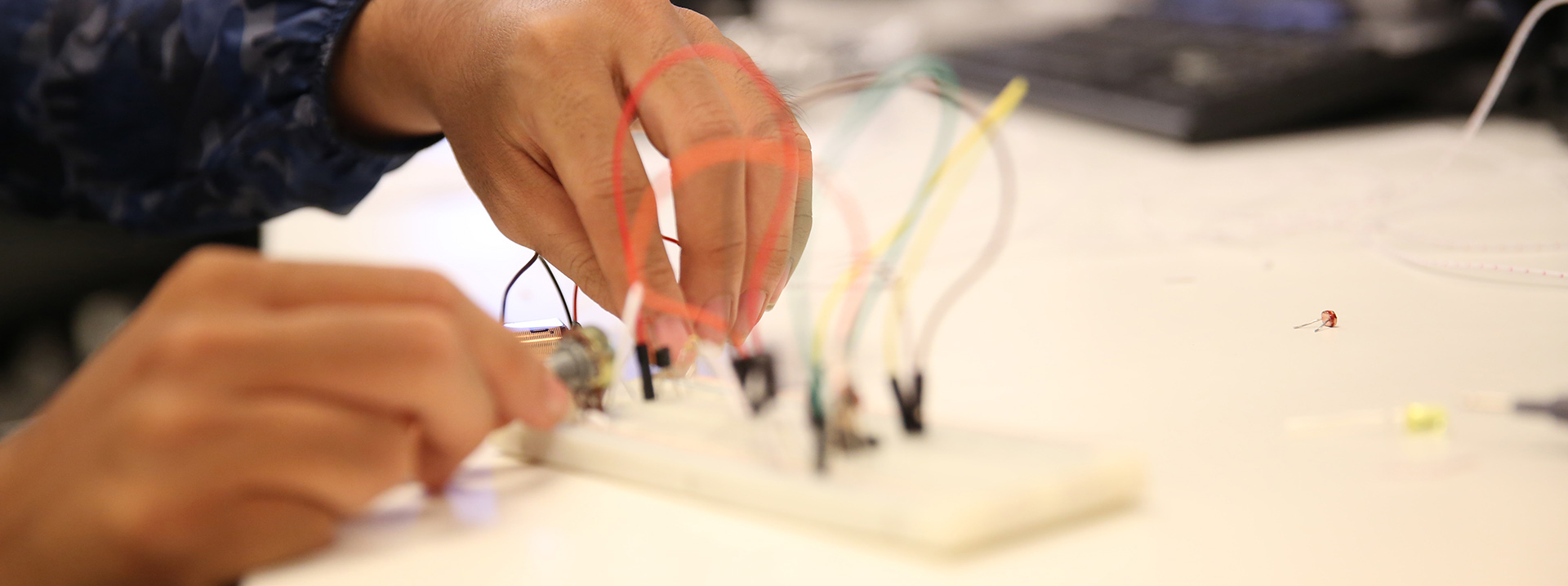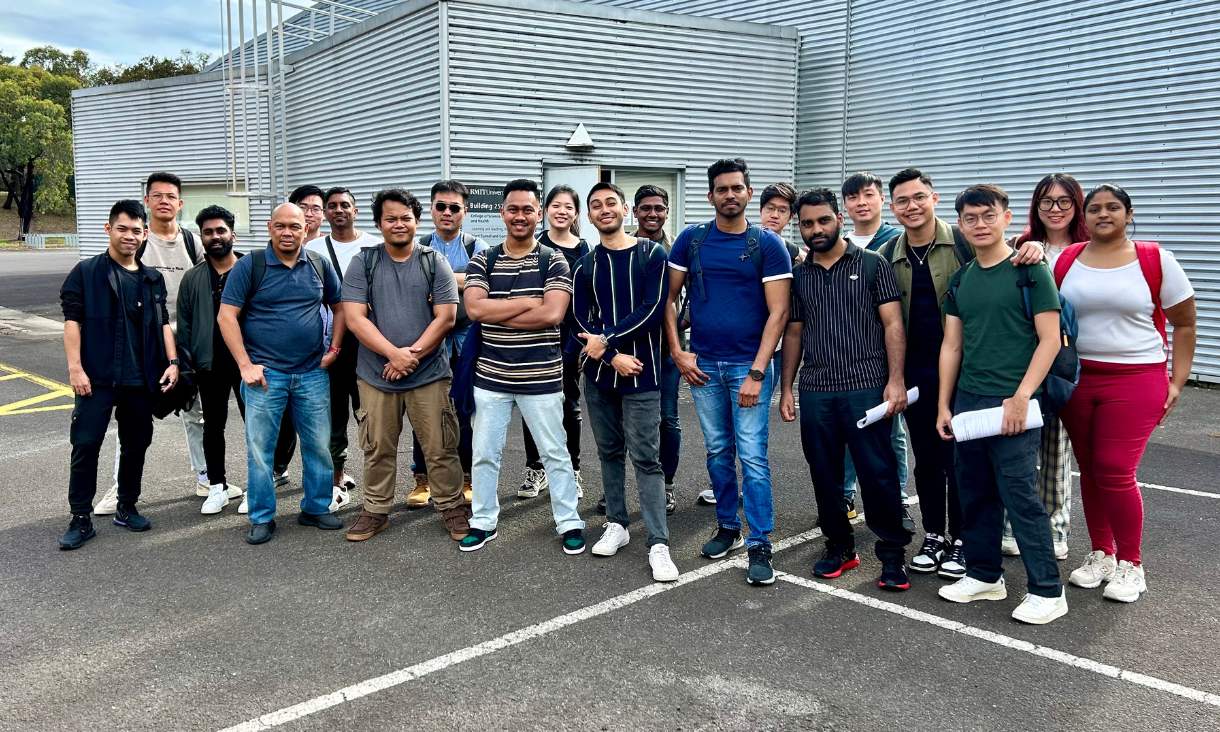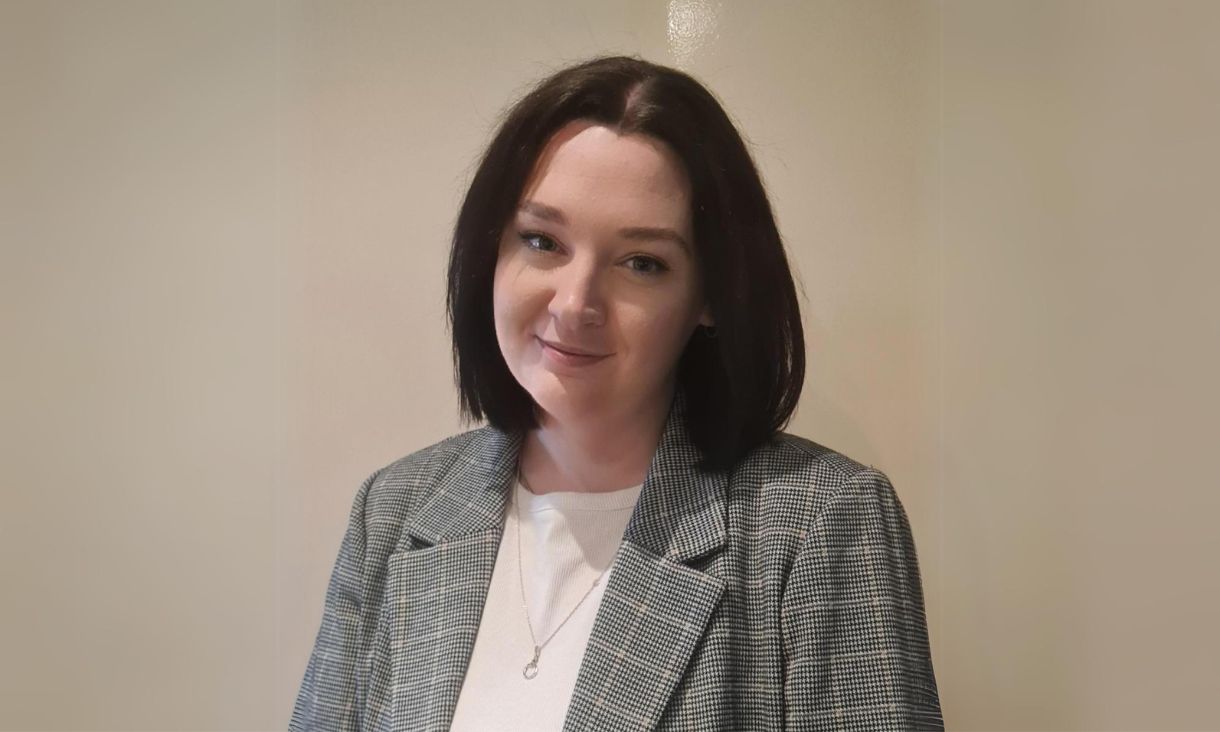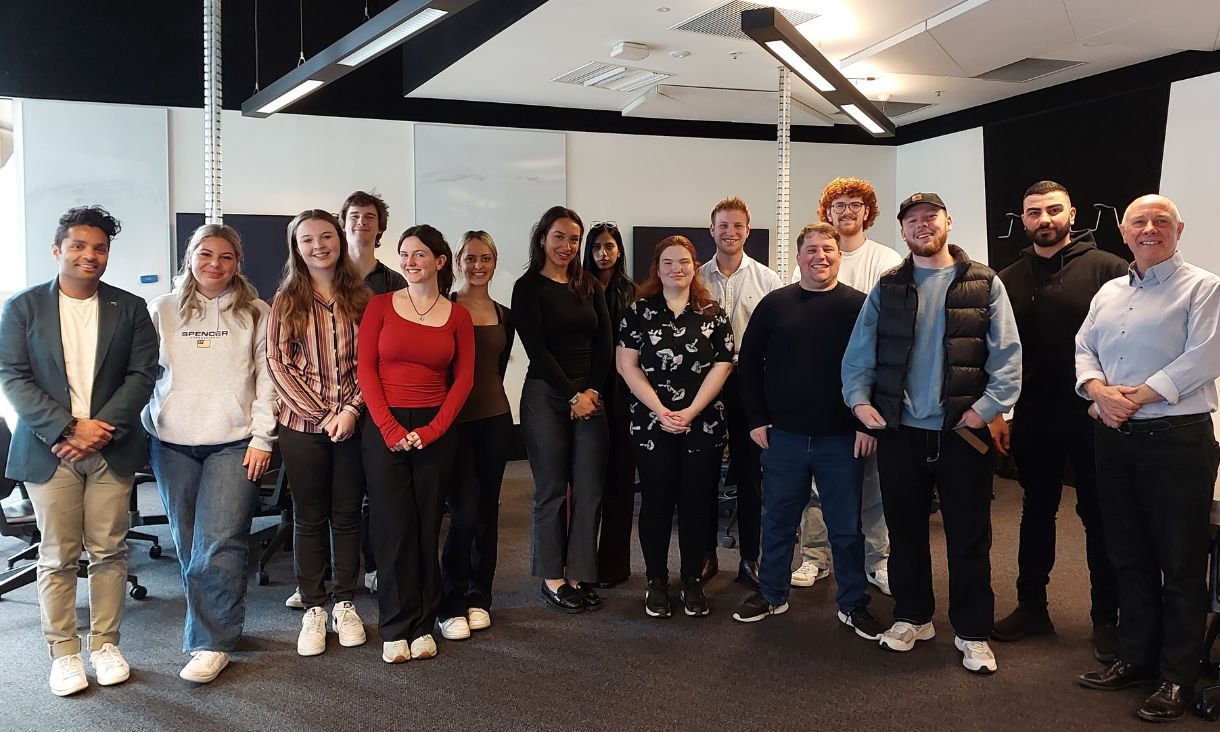Students’ giant magpie glider helps British Consul-General take flight at Moomba Birdman Rally
RMIT students designed and built a glider resembling a giant magpie, which carried the British Consul-General for Victoria above the Yarra River as part of the 2024 Moomba Birdman Rally on Sunday 10 March.
Residential visit sees Singapore and Hong Kong students visit RMIT
The School of Engineering has hosted 38 students from partner institution Kaplan Singapore, and a further 51 from School for Higher and Professional Education, Vocational Training Council (SHAPE VTC) in Hong Kong, for a one-week learning program.
From hardship to triumph, graduate shares her unconventional path to success
Growing up, Lauren Watson didn’t think higher education was an option. Now, she’ll be among the thousands of RMIT University students graduating this year.
Learning with industry: RMIT and MINI Australia
A group of marketing students recently got the chance to pitch their campaign strategies to iconic car manufacturer MINI.





